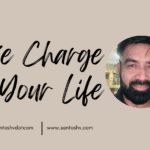Human beings are often criticized for being selfish. From a moral standpoint, selfishness is generally portrayed as negative — a lack of concern for others, a desire to benefit at someone else’s expense. But when we step back and examine human behavior from an evolutionary and psychological perspective, a more nuanced picture emerges.
What if selfishness is not a flaw, but a natural design feature of our species — a survival instinct wired into us through millions of years of evolution? And more importantly, what if we could become consciously selfish — choosing ourselves while still being mindful of others?
1. The Evolutionary Logic of Selfishness
Evolution by natural selection favors traits that enhance survival and reproduction. This principle is as true for humans as it is for any other living organism. Every action — from finding food, seeking shelter, forming alliances, competing for resources, and even helping others — can be understood through the lens of self-preservation and fitness maximization.
1.1 The Basic Principle of Natural Selection
Natural selection operates on a simple premise: organisms that are better adapted to their environments survive longer and reproduce more. Over time, traits that enhance survival and reproduction become more common in a population. Selfishness — actions that benefit the individual — often falls within this adaptive range.
- Survival advantage: Individuals who prioritize food, safety, shelter, and personal security are more likely to live long enough to reproduce.
- Reproductive success: Pursuing opportunities that lead to better mates or more offspring is inherently self-serving, yet evolutionarily necessary.
Selfish behavior, therefore, is not a flaw — it’s a feature. It’s how nature ensures that the best-adapted individuals pass on their genes.
1.2 Selfishness as a Survival Strategy
From prehistoric times, humans competed for limited resources: food, water, territory, and mates. Those who focused on self-preservation were more likely to survive. This included:
- Securing better resources (hunting grounds, shelter)
- Avoiding dangerous situations that could lead to injury or death
- Gaining social status, which often translated to better survival prospects
Even in modern settings, this instinct is visible in ambition, competitiveness, and personal goal-setting — all of which stem from our evolutionary past.
1.3 Reciprocal Altruism: Strategic Selfishness
In social species like humans, reciprocal altruism — helping others with the expectation of future return is a powerful evolutionary tool.
- Building trust: Helping someone now increases the likelihood they will help you later.
- Social currency: Generosity often earns goodwill, status, or reputation.
- Deterring freeloaders: Humans evolved to punish cheaters and reward cooperators, maintaining fairness in groups.
What appears to be selflessness can actually be a form of long-term, strategic selfishness — investing in others to ensure future support.
1.4 Altruism and the Hidden Self-Interest
Many acts of kindness, charity, and sacrifice have a hidden layer of self-benefit:
- Emotional satisfaction: Helping others feels good because the brain rewards such actions with dopamine.
- Social approval: Generous acts often enhance one’s image in the eyes of others.
- Reciprocity: Creating a norm of mutual support increases the chances of being helped when needed.
Even moral frameworks like religion, philosophy, and ethics that promote altruism can be evolutionarily beneficial — creating cooperative societies that protect all members, including the individual.
2. Unconscious Self-Prioritization : The Natural Way
Psychological research shows that we often choose ourselves without even realizing it. Studies in social psychology reveal phenomena like:
- Implicit bias: We unconsciously prefer people like us, or those who benefit us.
- Cognitive dissonance: We justify our choices and behaviors to preserve self-image.
- Egocentric bias: We overestimate our importance or contribution in group settings.
2.1 The Hidden Hand of the Self
- While much of our behavior appears rational or fair on the surface, psychological research consistently shows that we unconsciously prioritize ourselves in subtle, automatic ways.
- These behaviors aren’t deliberate or calculated — they arise from cognitive shortcuts, biases, and emotional mechanisms that serve self-interest without our conscious awareness.
- This “hidden self” constantly navigates the world with one guiding principle: protect and promote me. And it does so with remarkable stealth.
2.2 Implicit Bias: Favoring the Familiar and the Beneficial
Implicit biases are automatic associations we make about people, groups, or situations — often without realizing it. These biases frequently tilt us toward favoring:
- People who look like us, share our culture, language, or values (in-group bias)
- Those who can offer us something — support, resources, approval, or status
- Situations that protect or enhance our well-being
These biases help the brain make quick judgments in complex social environments, but they also skew fairness. We instinctively lean toward what benefits us, even if we consciously believe we are being neutral or altruistic.
2.3 Cognitive Dissonance: Protecting the Self-Image
Cognitive dissonance occurs when there’s a conflict between our beliefs, values, and behaviors. Rather than admit inconsistency or error, the brain often reshapes beliefs to protect self-image.
- If we hurt someone, we may justify it by saying they deserved it.
- If we act selfishly, we might claim we were just being “honest” or “assertive.”
- If we fail to help, we convince ourselves that our help wouldn’t have made a difference anyway.
This psychological defense mechanism preserves our sense of being “a good person” — even when our actions subtly prioritize ourselves over others.
2.4 Egocentric Bias: Overestimating Our Role
Humans tend to overestimate their own importance, especially in group settings. This is known as egocentric bias, and it manifests in many ways:
- Believing we contributed more to a team project than we actually did
- Thinking our perspective is more reasonable, valid, or informed than others’
- Assuming others are more aware of our feelings, actions, or intentions than they really are
This bias reinforces a sense of self-centrality. It helps boost self-esteem and motivation, but it also skews our ability to objectively evaluate situations — especially those involving shared responsibility or conflict.
2.5 Empathy and Self-Relief: Helping to Feel Better
While empathy is widely seen as a selfless trait, it often has a self-soothing component. Neuroscience shows that when we witness another’s pain, our own emotional circuits are activated. This makes us uncomfortable — and motivates us to help not only to ease their suffering, but to reduce our own distress.
- Helping someone in pain provides emotional relief to the helper
- Offering support can make us feel competent, needed, or morally upright
- In some cases, helping protects social harmony or avoids guilt
Thus, empathy-driven behaviors, while noble, often serve a dual purpose: caring for others and regulating our own emotional discomfort.
2.6 The Myth of Pure Altruism
While humans are capable of extraordinary compassion, pure altruism — acts done with no self-benefit at all — is exceedingly rare. Most helping behaviors offer:
- Emotional rewards (feeling good, pride)
- Social rewards (praise, admiration, belonging)
- Practical benefits (reciprocity, reduced risk)
This isn’t cynicism — it’s psychological realism. Understanding that we often help others in ways that also help ourselves does not invalidate the goodness of those actions. It simply frames them in a more honest, multidimensional way.
2.7 Self-Prioritization Isn’t Hypocrisy — It’s Human
The gap between our values (equality, fairness, kindness) and our unconscious tendencies to favor ourselves doesn’t make us hypocrites. It makes us human.
- We evolved to navigate complex social ecosystems, balancing self-interest with social cohesion.
- Our unconscious mind works to protect our survival, identity, and emotional stability — often faster than our conscious mind can process.
- These psychological mechanisms aren’t inherently “bad” — they only become problematic when they go unchecked or harm others.
Recognizing these biases and unconscious behaviors gives us the power to make more mindful, ethical, and constructive choices.
3. Conscious Selfishness: A New Way to Choose Yourself
Rather than deny or suppress this inherent selfishness, we can embrace it consciously — with awareness, intention, and ethics. This shift from unconscious competition to conscious navigation allows us to align personal growth with collective well-being.
3.1 Redefining Selfishness
The term selfish often carries a negative connotation — associated with greed, disregard for others, or moral failing. But what if we reframed it? What if selfishness wasn’t about exploitation, but empowerment? Not about taking more than your share, but about choosing yourself — wisely, ethically, and deliberately?
- Conscious selfishness is just that: an evolved, intentional practice of prioritizing your own needs, well-being, and values — without harming others and without guilt.
- It’s not about being “better than” others, but being better to yourself in a way that harmonizes with the world around you.
3.2 What Conscious Selfishness Means
At its core, conscious selfishness is rooted in self-awareness, ethical decision-making, and personal responsibility. It involves recognizing your worth, standing up for your needs, and choosing growth over guilt. Here’s what it entails:
- Acknowledging your right to thrive: It’s okay to want happiness, success, peace, and fulfillment. This is not vanity — it’s vitality.
- Pursuing your goals without shame: Ambition and dreams are not selfish when pursued with integrity. Wanting more from life doesn’t make you less moral.
- Protecting your energy and boundaries: Saying “no” isn’t cruel — it’s clarity. Choosing who and what you give your time to is an act of respect for yourself and others.
- Refusing to harm others for gain: Conscious selfishness draws a firm ethical line — growth for yourself should not come through exploitation or manipulation.
- Respecting the autonomy of others: Just as you claim the right to choose yourself, others have the same right. Mutual autonomy builds mature, authentic relationships.
3.3 From Unconscious Survival to Conscious Living
Many of our self-serving behaviors are unconscious — rooted in instincts for survival, acceptance, or security. Conscious selfishness is about upgrading those instincts into intentional actions aligned with your highest values.
Instead of:
- Competing blindly → Collaborating strategically
- People-pleasing → Self-respecting
- Avoiding discomfort → Confronting necessary truths
- Guilt-driven giving → Generosity with boundaries
This conscious shift turns self-prioritization from a reactive survival strategy into a deliberate life philosophy.
3.4 Conscious Selfishness in Real Life
Let’s explore how conscious selfishness plays out in everyday choices. These examples demonstrate that putting yourself first isn’t just acceptable — it’s often essential.
3.4.1 Choosing a High-Paying Job
Yes, it’s a selfish act — you’re choosing financial security, lifestyle upgrades, or career growth. But if done:
- Ethically (without deception or harm),
- With value creation (contributing to society or solving real problems),
- With respect for others’ needs (fair hiring, sustainability),
…it becomes a conscious, responsible choice — one that benefits both you and the system.
3.4.2 Exiting a Toxic Relationship
Leaving someone who disrespects, manipulates, or harms you is self-preservation. It may hurt them, but your responsibility is not to absorb their dysfunction at the cost of your peace.
It’s selfish — and absolutely necessary. Conscious selfishness here is:
- Acknowledging your pain
- Recognizing your worth
- Taking action with clarity and compassion
3.4.3 Setting Boundaries
Whether it’s turning off your phone after 9 p.m., refusing to attend draining social events, or declining requests that don’t align with your goals — boundaries are where conscious selfishness becomes self-care. Boundaries say: “I matter too. And I’m not here to abandon myself in the name of approval.”
3.4.4 Choosing Mental Health
Prioritizing your psychological well-being — through therapy, solitude, rest, or radical honesty — is perhaps the most profound form of conscious selfishness.
- Saying “no” to toxic positivity
- Saying “yes” to healing and truth
- Detaching from roles that suffocate you
You are allowed to heal, even if others don’t understand your journey.
3.5 Conscious Selfishness Is a Form of Integrity
Ironically, being selfish in the right way makes you a more authentic, trustworthy, and kind person. Why?
- Because you’re not helping out of obligation, but from overflow
- You’re not staying in situations where you build resentment
- You’re not lying to yourself or others just to “keep the peace”
When you honor yourself first, your contributions to others come from a place of abundance — not martyrdom or self-betrayal.
3.6 Give Yourself Permission to Choose You
Self-sacrifice isn’t a virtue when it leads to self-neglect. Conscious selfishness invites us to rewrite the script — to stand in our truth, honor our needs, and act from aligned intention.So go ahead:
- Speak up
- Take the opportunity
- Leave what’s hurting you
- Say no, even if it disappoints someone
- Rest when the world demands performance
Not because you don’t care about others — but because you finally care about yourself. And in doing so, you create space to love others more deeply, honestly, and sustainably.
4. Why Choosing Yourself Isn’t Wrong
In a world that praises self-sacrifice, hustle, and constant availability, choosing yourself can feel rebellious — even wrong. We’re often conditioned to put others first, to suppress our needs, and to equate self-care with selfishness.But this conditioning leads to burnout, resentment, and inner fragmentation.
Choosing yourself isn’t abandonment of others — it’s an act of wholeness. It’s the foundation for healthy relationships, personal integrity, and sustainable giving.
4.1 The Cultural Confusion: Self-Love vs Selfishness
Many cultures, especially collectivist or duty-driven ones, teach that putting yourself first is egotistical or shameful. But that belief often comes from:
- Misunderstanding of what selfishness actually means
- Glorification of martyrdom and people-pleasing
- Social systems that benefit from your self-neglect
This leads to the confusion of:
- Self-care with laziness
- Boundaries with disobedience
- Saying “no” with being cold or rude
- Confidence with arrogance
The truth is, choosing yourself doesn’t make you selfish — it makes you honest.
4.2 Choosing Yourself is an Act of Self-Respect
When you choose yourself, you’re declaring:
- “I matter.”
- “My needs are valid.”
- “My energy is worth protecting.”
This isn’t arrogance. It’s self-respect — the root of all healthy behavior. When you respect yourself, you stop tolerating mistreatment, overextension, or soul-draining roles.
You stop waiting for others to give you permission, and you begin to live from a place of internal authority.
4.3 Choosing Yourself Creates Inner Alignment
To not choose yourself is to live in contradiction.
- You say “yes” when you mean “no”
- You show up for others but abandon yourself
- You suppress your truth to maintain peace
This internal split creates stress, emotional dissonance, and inauthenticity.
Choosing yourself restores alignment between what you feel, what you believe, and how you act. This alignment is where inner peace and power come from.
4.4 Choosing Yourself Sets Boundaries that Protect Energy
These are not walls. They’re gates with locks — allowing what’s good in, and keeping what’s harmful out. You are not infinite. Your time, energy, and emotional bandwidth are limited resources. Without boundaries, they get drained by:
- Toxic relationships
- Endless obligations
- Emotional labor that isn’t reciprocated
Choosing yourself helps you say:
- “I love you, but I can’t do this today.”
- “I care, but I have limits too.”
- “This matters to me, but not more than my health or sanity.”
4.5 When You Don’t Choose Yourself: The Cost
Neglecting yourself in the name of duty, guilt, or fear has a quiet but devastating cost. You may become:
- Resentful: Giving becomes burdensome, filled with hidden expectations.
- Empty: You have nothing left for yourself, let alone for others.
- Fragmented: Your public self thrives, but your inner self feels neglected or numb.
- Disempowered: Others make choices for you; you lose the sense of agency.
4.6 Choosing Yourself Is the First Step to Choosing Life
When you choose yourself, you’re not just making a single decision — you’re rewriting your entire contract with life. You begin to:
- Choose meaning over performance
- Choose healing over hiding
- Choose freedom over fitting in
- Choose joy over obligation
This doesn’t mean abandoning responsibility — it means becoming more responsible to yourself, which paradoxically makes you more capable of loving and leading others.
4.7 It’s Not “Me vs Them” — It’s “Me Too”
Choosing yourself doesn’t mean others don’t matter. It simply means: You matter, too.
- Your dreams aren’t less important than your family’s expectations.
- Your mental health isn’t less important than your workplace deadlines.
- Your peace isn’t less valuable than someone else’s comfort.
- When you choose yourself, you join the equation — instead of being erased by it.
5. Final Call
- Let’s be clear — human beings are inherently self-interested, and that’s by evolutionary design. It’s not a weakness. It’s what kept our species alive. But today, survival alone is no longer the goal. In an age defined by consciousness, morality, and connection, it’s our responsibility to evolve beyond primitive instincts.
- Prioritizing yourself is not selfish — it’s intelligent. It’s essential. But it must be done with integrity. When rooted in awareness and guided by values, choosing yourself becomes a powerful act of leadership — not just over your life, but as an influence on others.
- So I say this with conviction: choose yourself — unapologetically. Fight for your growth. Operate at your highest potential. But do it with emotional intelligence, ethical clarity, and the kind of presence that doesn’t just serve you — it elevates everyone you touch. That is what conscious self-prioritization looks like. And that is the path forward.




